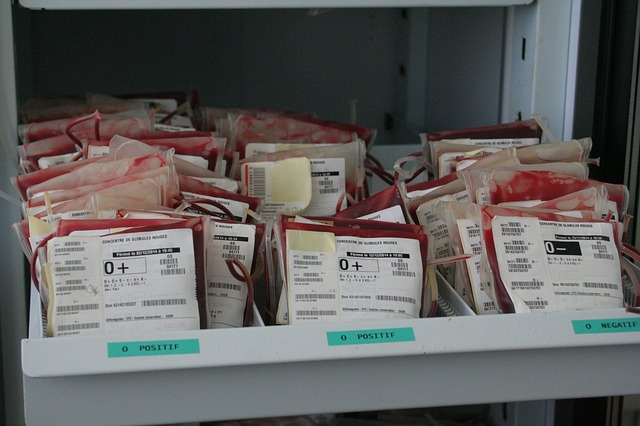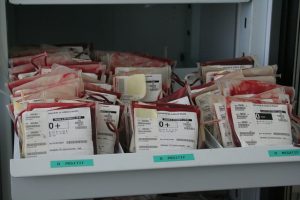Blood donor infects premature infants with Babesia

Babesia is a parasite which infects red blood cells, causing symptoms similar to those seen with malaria. It’s typically transmitted by a tick bite but can be acquired through contaminated blood transfusions. The disease can be extremely difficult to recognize in adults. Imagine the challenge of diagnosing it in premature infants.
A team of researchers at Yale School of Medicine describe three premature infants — all in one neonatal intensive care unit — who contracted Babesia from a single 24-year-old blood donor. The report was published in the Pediatric Infectious Diseases Journal. [1]
LISTEN TO PODCAST: Three premature babies who contract Babesia from blood transfusions

“Screening questionnaires are clearly insufficient given the growing number of cases of transfusion-transmitted babesiosis,” writes Glanternik from the Division of Infectious Diseases, Department of Pediatrics at Yale School of Medicine.
Transfusion-transmitted babesiosis
The 24-year-old donor from Connecticut was not recognized by the blood bank and “was deemed suitable for donation by the American Red Cross and his serology was negative for all FDA-mandated tests,” Glanternik explains.
Three premature infants contracted Babesia from this donor, with two of the infants developing high-grade parasitemia (presence of parasites in the blood), according to Glanternik. The parasitemia rose to a high of 13.4% and 12.5% for Infant A and B, respectively. Parasitemia peaked at 6.8% for Infant C.
All three premature infants were treated with a combination of azithromycin and atovaquone despite published recommendations for clindamycin and quinine. [2] “The stability of oral suspension [of quinine] using capsules is undetermined,” explains Glanternik. “Furthermore, quinine’s narrow therapeutic index and potential adverse effects limits its utility in treating small children.”
The infants were treated for 14 days — longer than the 7-10 day recommendation described in the Infectious Diseases Society of America (IDSA) guidelines. [2]
However, more than a month (48 days) after treatment, one of the infants relapsed. There were no specific signs that could be attributed solely to babesiosis, explains Glanternik. But a “routine blood smear demonstrated relapse with 1% parasitemia.”
By day 9 of retreatment, the smear was negative. Treatment continued for a total of 23 days. None of the three premature infants required transfusions.
Authors warn of difficulties detecting Babesia in infants
“Clinicians should maintain a high index of suspicion for neonatal babesiosis in an infant who has received a transfusion because the clinical manifestations and concomitant lab abnormalities are non-specific and resemble those present in prematurity even in the absence of infection.”
Several additional questions are worth pursuing:
- Would longer initial treatment have prevented a relapse for Infant C.
- What are the consequences for infants if Babesia is not detected by thick smear?
- How can doctors be sure their newborns are clear of Babesia after clearing parasitology with Babesia by blood smear?
Related Articles:
Congenital transmission of babesiosis: two case reports
Transfusion-transmitted babesiosis popping up in more states in the USA
Sweats may be a sign of Babesia
Study raises concerns for Babesia patients and blood banks
References:
- Glanternik JR, Baine IL, Tormey CA, Rychalsky MR, Baltimore RS. A Cluster of Cases of Babesia Microti Among Neonates Traced to a Single Unit of Donor Blood. Pediatr Infect Dis J. 2017.
- Wormser GP, Dattwyler RJ, Shapiro ED, et al. The clinical assessment, treatment, and prevention of lyme disease, human granulocytic anaplasmosis, and babesiosis: clinical practice guidelines by the Infectious Diseases Society of America. Clin Infect Dis. 2006;43(9):1089-1134.



Join the Lyme Conversation
(Note: comments are moderated. You will see your comment after it has been reviewed.)